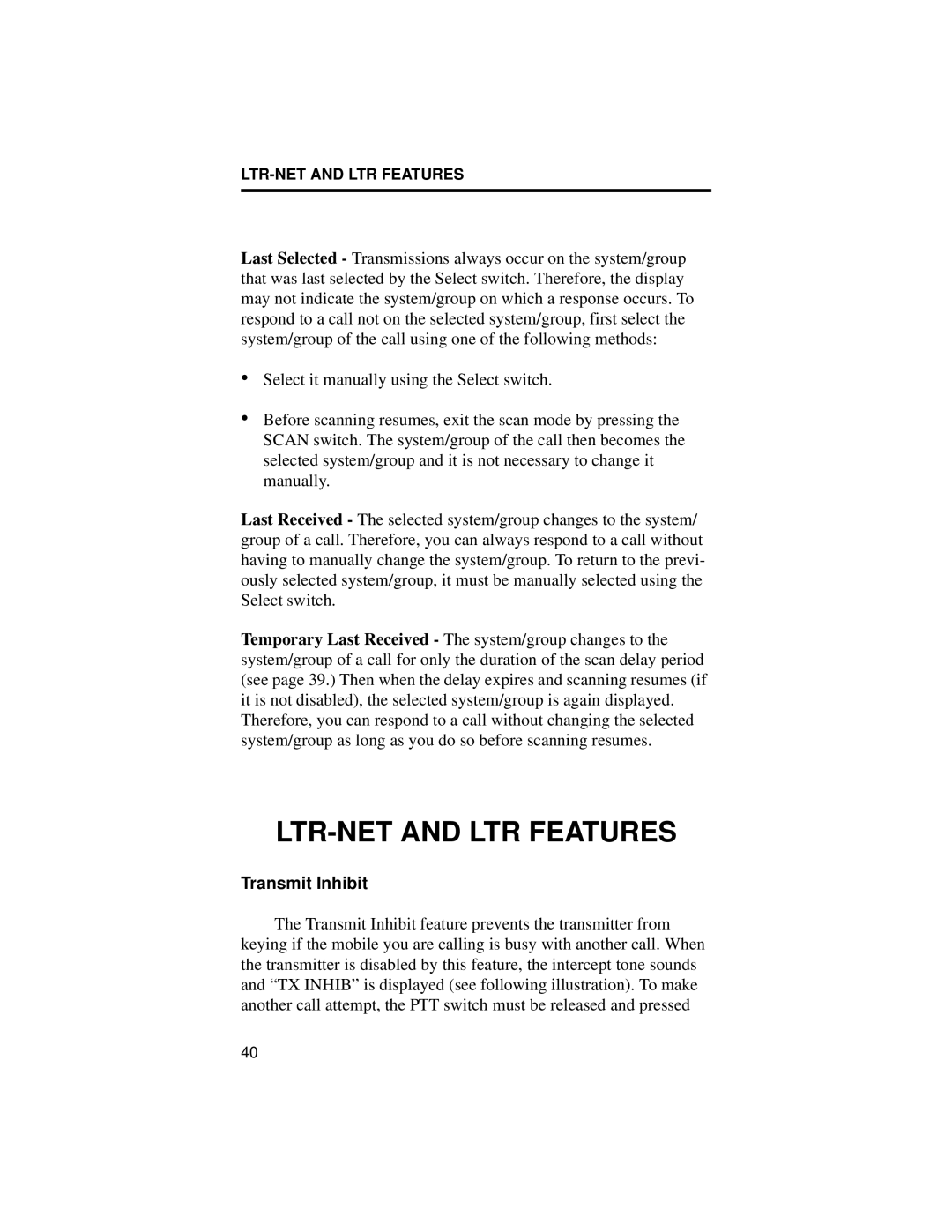Last Selected - Transmissions always occur on the system/group that was last selected by the Select switch. Therefore, the display may not indicate the system/group on which a response occurs. To respond to a call not on the selected system/group, first select the system/group of the call using one of the following methods:
•Select it manually using the Select switch.
•Before scanning resumes, exit the scan mode by pressing the SCAN switch. The system/group of the call then becomes the selected system/group and it is not necessary to change it manually.
Last Received - The selected system/group changes to the system/ group of a call. Therefore, you can always respond to a call without having to manually change the system/group. To return to the previ- ously selected system/group, it must be manually selected using the Select switch.
Temporary Last Received - The system/group changes to the system/group of a call for only the duration of the scan delay period (see page 39.) Then when the delay expires and scanning resumes (if it is not disabled), the selected system/group is again displayed. Therefore, you can respond to a call without changing the selected system/group as long as you do so before scanning resumes.
LTR-NET AND LTR FEATURES
Transmit Inhibit
The Transmit Inhibit feature prevents the transmitter from
keying if the mobile you are calling is busy with another call. When the transmitter is disabled by this feature, the intercept tone sounds and “TX INHIB” is displayed (see following illustration). To make another call attempt, the PTT switch must be released and pressed
40
